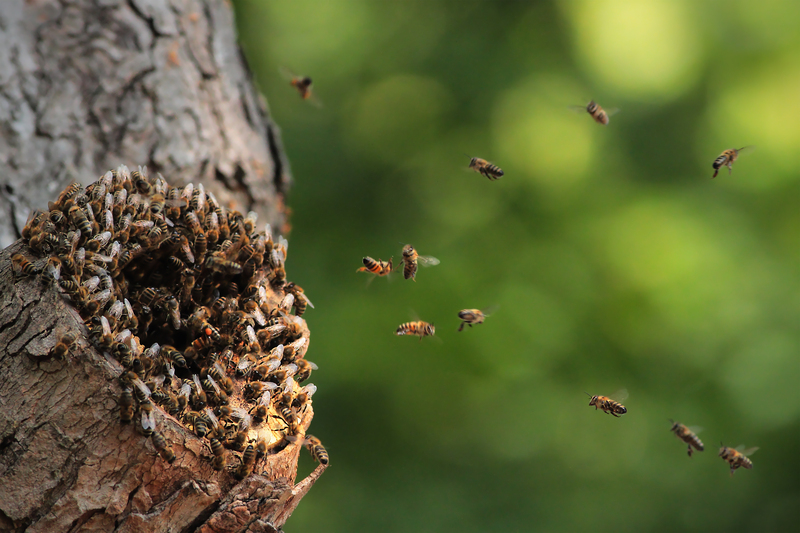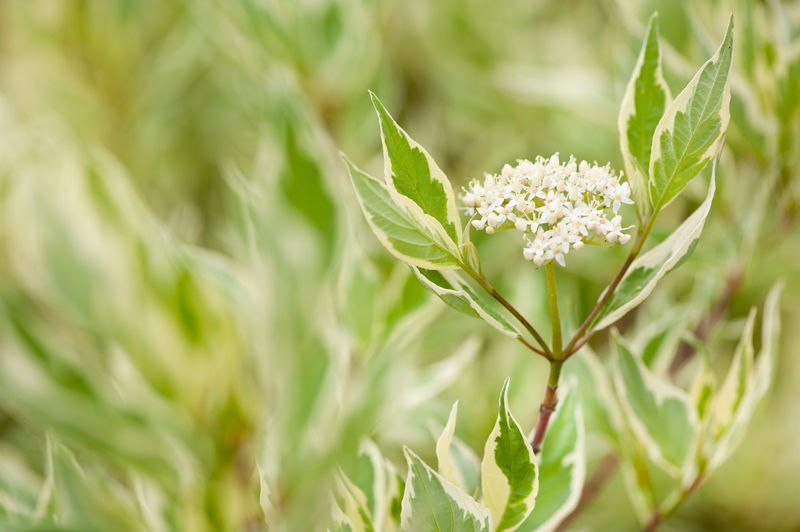Master the Art of Growing Your Own Herb Garden
Posted on 18/06/2025
Master the Art of Growing Your Own Herb Garden
Are you dreaming of harvesting fresh basil for homemade pesto or snipping sprigs of rosemary straight from your kitchen windowsill? Mastering the art of growing your own herb garden is a truly rewarding and accessible way to enhance your cooking, boost your well-being, and deepen your connection with nature. Whether you're a backyard gardener or live in an urban apartment, cultivating herbs is an enjoyable and sustainable hobby. This comprehensive guide will teach you how to start and thrive with your own herb garden, from choosing the right varieties to expert care and harvesting tips.

Why Grow Your Own Herb Garden?
Starting a home herb garden offers a multitude of benefits beyond just delicious flavors. Here's why you should consider mastering the practice of homegrown herbs:
- Freshness and Flavor: Home-grown herbs offer unrivaled flavor and fragrance.
- Cost-Effective: A packet of seeds often costs less and lasts longer than a store-bought bundle of herbs.
- Health Benefits: Most herbs provide valuable antioxidants, vitamins, and minerals to your diet.
- Eco-Friendly: Growing your own herbs reduces packaging waste and transportation emissions.
- Therapeutic Value: Gardening, even on a small scale, is proven to reduce stress and enhance well-being.
Planning Your Herb Garden: Indoor or Outdoor?
One of the beauties of growing a herb garden is its versatility. You can cultivate popular culinary herbs either indoors on a sunny windowsill, outdoors in individual pots, or in an expansive garden bed. Consider these factors when planning:
- Climate: Assess your local temperature, light, and seasonal changes to choose herbs best suited for your region.
- Space: Determine whether you want a small container garden, a windowsill setup, or a dedicated outdoor patch.
- Herb Varieties: Some herbs (such as basil or parsley) adapt well indoors, while others (like oregano, thyme, or sage) thrive better outdoors.
Choosing the Best Location
For successful herb gardening, sunlight is essential. Most herbs need at least 6 hours of sun each day. If indoors, select a south-facing windowsill or use supplemental grow lights. For outdoor gardens, pick a spot with well-draining soil that avoids heavy shade.
Selecting Popular Herbs to Grow
Want to cultivate an aromatic and productive home herb garden? Start with these essential, easy-to-grow herbs beloved by chefs and gardeners:
- Basil: An annual favorite for its sweet, peppery flavor--perfect for Italian dishes and salads.
- Mint: Vigorous and refreshing; ideal for teas, desserts, and cocktails (grow in containers to control its spread).
- Parsley: Versatile and packed with nutrients; used as a garnish or blended into sauces and salads.
- Thyme: Hardy, drought-tolerant, and aromatic; complements roasted meats and vegetables.
- Rosemary: A woody, perennial herb essential for Mediterranean cuisine and grilled dishes.
- Cilantro: A fast-growing herb essential for Mexican, Asian, and Middle Eastern dishes.
- Chives: Mild, onion-flavored leaves ideal for soups and dips.
- Sage: A robust herb that fares well in cool weather and hearty dishes.
- Dill: A key ingredient in pickling and pairs beautifully with fish.
Perennial vs. Annual Herbs
Understanding the difference helps you plan your herb garden for year-round harvests:
- Annuals: Complete their lifecycle in one season (e.g., basil, cilantro, dill).
- Perennials: Come back year after year (e.g., thyme, rosemary, sage, chives, mint).
- Biennials: Grow leaves the first year and set seeds the second (e.g., parsley is often grown as an annual in cooler climates).
Growing Herbs from Seeds Versus Starter Plants
When beginning your adventure in mastering a home herb garden, you have two main options--seeds or starter plants. Each has advantages:
- Seeds: Offer the most variety and value. Ideal for annuals like basil, dill, or cilantro. Start seeds inside 6-8 weeks before the last frost.
- Starter plants: Provide a head-start, especially for slow-growing or perennial herbs such as rosemary, thyme, and sage. Great for beginners.
How to Plant Herb Seeds
- Select a wide, shallow container with good drainage.
- Fill with a light, seed-starting mix and moisten.
- Sow seeds thinly, according to package depth recommendations.
- Lightly cover and mist to keep moist but not soggy.
- Place in a warm, bright spot or under grow lights until seedlings emerge.
Creating the Perfect Environment for Herbs
To master herb gardening at home, set your plants up for success from the start. Follow these essential guidelines:
Soil and Drainage
- Herbs require well-draining soil. Use a quality potting mix outdoors or indoors.
- Amend heavy soils with compost or sand to enhance drainage.
- Container-grown herbs should have holes for water runoff.
Watering Techniques
- Most herbs prefer soil that's kept slightly moist but never waterlogged.
- Water at the soil level to avoid wetting leaves, which can encourage disease.
- Allow soil to dry out a bit between waterings for Mediterranean herbs like rosemary, sage, and thyme.
Sunlight and Temperature
- Full sun is best! Aim for at least 6 hours daily.
- Some herbs, like mint or parsley, can tolerate partial shade.
- Indoors: Rotate your pots for even growth, and supplement with grow lights if needed.
Caring for Your Herb Garden
Consistent care is the secret to mastering the art of your own herb garden. Here are the basics:
Fertilizing Your Herbs
- Light feeding is best. Over-fertilizing can reduce flavor.
- Use a diluted, organic liquid fertilizer once a month during the growing season.
- Compost or worm castings are excellent for outdoor beds.
Pruning and Harvesting Techniques
Regular pruning is the key to lush, bushy herbs. Don't be afraid to harvest--you'll encourage new growth!
- Basil: Pinch off leaves just above a pair of leaf nodes.
- Mint: Take stems from the base to encourage fullness.
- Thyme & Oregano: Snip sprigs from the outer edges.
- Rosemary & Sage: Harvest no more than a third of the plant at a time.
- Avoid flowering: Pinch off buds to maintain leafy growth (unless you want seeds).
Dealing with Pests and Diseases
- Monitor regularly: Check for aphids, spider mites, or whiteflies.
- Use natural remedies: Neem oil spray, insecticidal soap, or introducing beneficial predatory insects.
- Avoid overwatering: Prevents fungal diseases and root rot.
Extending Your Herb Harvest: Drying, Freezing, and Storing
Once you've mastered your home herb garden, you'll likely end up with an abundance of fresh herbs. Don't let them go to waste! Here are the best ways to preserve your bounty:
- Air Drying: Tie small bunches with string and hang upside down in a warm, dry spot. Once crisp, crumble into airtight jars.
- Freezing: Chop herbs and freeze in ice cube trays with water or olive oil--perfect for tossing into sauces and soups.
- Basil: Try pureeing with olive oil and storing in the fridge, or make classic pesto.
- Infused Vinegars or Oils: Steep herbs in vinegar or oil for months of flavor.
Creative Design Ideas for Your Home Herb Garden
Growing a herb garden isn't just practical--it can be beautiful and personalize your home:
- Windowsill Herb Planters: Modern troughs or mason jars create a "living spice rack."
- Vertical Herb Gardens: Use wall-mounted planters for stylish space-saving solutions.
- Garden Beds or Raised Planters: Mix herbs with edible flowers for a decorative kitchen garden.
- Hanging Baskets: Perfect for trailing varieties like thyme or oregano.
Common Mistakes to Avoid When Growing Herbs
Even seasoned gardeners make errors when growing their own herbs. Here's what to watch out for:
- Overcrowding: Allow room for air circulation between each herb.
- Overwatering: Soggy soil invites root rot. Let soil dry slightly between watering.
- Poor Light: Insufficient sun produces leggy, flavorless herbs.
- Poor Soil Drainage: Always use containers with adequate drainage holes.
- Neglecting Harvests: Regular pruning is essential for health and productivity.

Frequently Asked Questions About Herb Gardening
Can I Grow Herbs Indoors All Year Long?
Absolutely! As long as you provide adequate light and warmth, many herbs will flourish indoors throughout the year. Supplemental grow lights are especially helpful in winter months.
Should I Use Seeds or Starter Plants?
If you want lots of variety or are an advanced gardener, start from seed. For beginners or perennial herbs, starter plants offer a quick and reliable way to begin harvesting sooner.
Which Herbs Are Best for Pots?
Herbs like basil, parsley, mint (contain its spread), thyme, and chives grow well in containers. Use a premium potting mix for best results.
How Often Should I Water My Herbs?
Check the top inch of soil--if it's dry, water gently. Overwatering is a frequent issue. Refer to herb-specific needs for optimal growth.
Enjoy the Rewards of Your Home Herb Garden
With patience and the right know-how, anyone can master the art of growing their own herb garden. Not only will you enjoy tastier meals and a gorgeous green display, but you'll also benefit from the joy and mindfulness of nurturing living plants. Whether you start with a single pot of basil or transform your windowsill with a variety of aromatic herbs, the rewards will enhance your kitchen, home, and lifestyle.
Ready to begin? Select your favorite herbs, follow these essential tips, and discover the satisfaction of cultivating a flourishing herb garden right at home.
Latest Posts
Effective Strategies for Managing Weed Growth
Discovering the World of Container Gardening
Unleash Your Creativity: Start Your Neglected Garden Makeover



